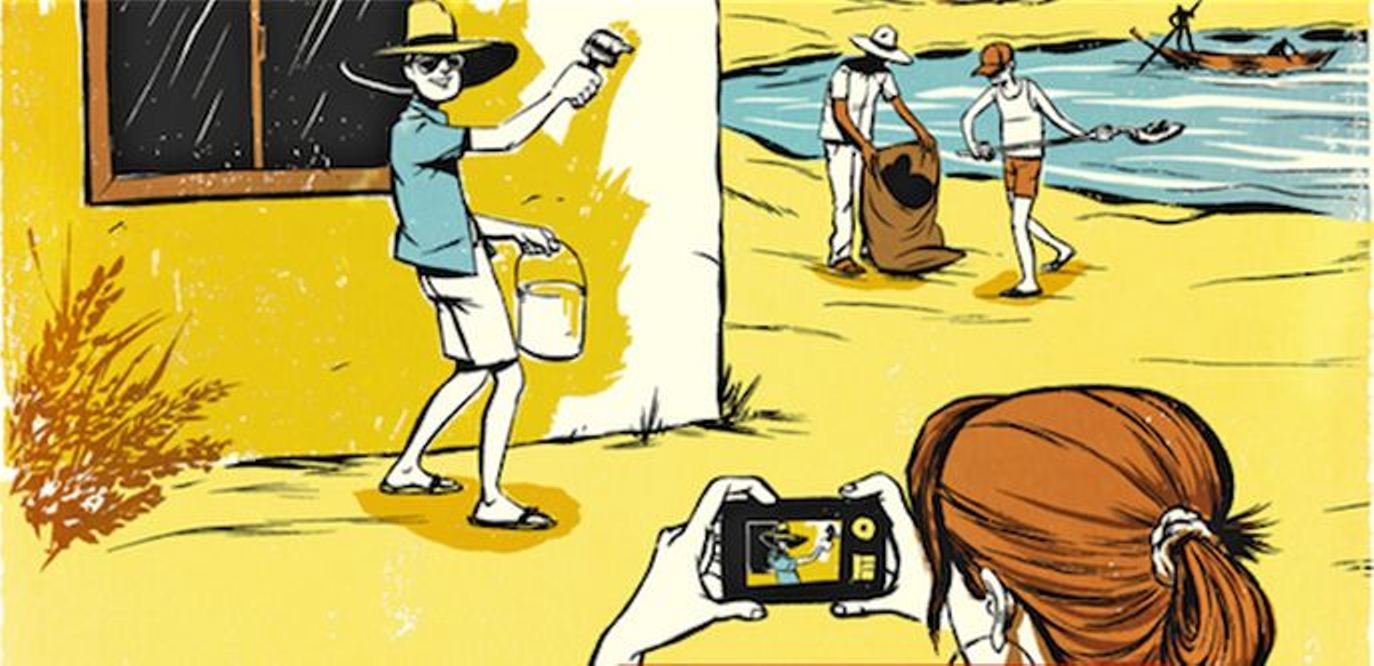With the first whiffs of spring weather signalling the end of the internship hunting season, many students are still searching for something to do with their summers. Many will be planning to volunteer abroad: Observers estimate the number of people that volunteered abroad in 2015 to be as high as 10 million in what is now a billion dollar industry. Many voices have lambasted so-called “voluntourism,” questioning the ethical implications behind it and the effect on the communities it purports to help. While such concerns are real, research by the Institute of Development Studies (IDS) points out that volunteers are essential actors in developing countries, providing logistic support and extending the reach of otherwise strained government services. Such findings indicate that the solution to the problems surrounding voluntourism is not to dismiss it altogether. Rather, the industry needs to be rebranded—or rather de-branded—so that resources are used intelligently and effectively while prioritizing the interests of local communities. In so doing, travellers must take responsibility for where they choose to go, and with whom.
Profiting on someone’s desire to help others has undeniable ethical consequences. The requirements of marketing strategies means that idealized visions of service to poorer communities, peddled by agencies offering all-inclusive deals, are often far from the realities of what needs to be accomplished. Building schools is all well and good, but volunteers—especially students—rarely possess the appropriate skills and experience. In her viral article “The Problem With Little White Girls (And Boys),” blogger Pippa Biddle recounts a trip to Tanzania she went on with her high school class. They were tasked with building a library, but their masonry was so shoddy that each night local workers would undo the day’s work and rebuild the structure.
Thought and care on the part of volunteers and organizers would have done much to avoid this harm. Simple measures such as mandatory training and sensitizing programs for volunteers would do much to curtail exploitation. Students should be encouraged to volunteer responsibly, to do their research, and to avoid the trappings of mass-market voluntourism. Their search for a volunteering opportunity should be based both on the nature and quality of the contribution they could make, and on the experiences they could gain.
There are echoes of the ‘journey to the colonies’ trope in voluntourist activities. As Rafia Zakaria explains in her piece “The white tourist’s burden,” voluntourism feeds a saviour-beggar relationship, perpetuated by the misconceived notion that other people’s problems are simpler to solve than our own. Why, ask the critics, do we not help in our own communities? It seems that the focus of volunteer trips often appears to be on one’s own experience of service rather than on the contribution made. Consider the stereotypical volunteer at an orphanage, bonding with a child only to disappear after a few days. The volunteer might leave with a more open mind and a more compassionate heart, but the child is left wondering why their new friend left. The answer to these criticisms is frustratingly straightforward: Students must realize that volunteering is not inherently good.
The war against voluntourism that has raged in blog posts and opinion columns has resulted in a black-and-white depiction of the issue, discouraging those who listen from getting involved at all. But there is value in engaging in ethical travel pursuits. Research has shown that volunteers provide some things that few other aid workers can. For example, in the IDS study, the volunteer’s status as both insider and outsider in a community is highlighted as an essential link between locals and NGOs. Volunteers can help locals fill out forms to apply for funding to build, for example, a clinic. They can also help locals understand how to effectively communicate with and get aid from their government. As clichéd as it sounds, volunteering fosters cross-cultural relationships. For students, volunteering can be an opportunity to gain valuable experience in the context of their field of study. Moreover, volunteering is often how aid workers begin their careers. Some have raised the question of whether this creates aid professionals who assume that they, by virtue of their work, can do no harm. This problem is nothing except a product of an industry that sells travel packages by playing to feelings of altruism. Eliminating such harmful side-effects has to involve efforts on the part of prospective volunteers to be conscious of their actions, and to demand that the voluntourism industry take responsibility for itself.








Thank you for this balanced article. The discussions and debates around international volunteering are important and need to happen. People, interested in helping, need to be aware of issues like sustainability, ethics and unintended consequences. But just because there are some issues that need to be carefully considered does not mean that all international volunteering is damaging and imperialistic. Even short term and unskilled volunteers can have an impact (however small) if the project is carefully considered and done in true partnership with the host community.
International Volunteer Programs Association (IVPA) is a US nonprofit dedicated to quality in international volunteering by accrediting volunteer sending organizations and promoting standards in the field. http://www.volunteerinternational.org